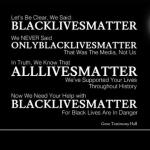Media Bits and Bytes

- With DNC Leaks, Former ‘Conspiracy Theory’ Is Now True––and No Big Deal – Adam Johnson (Fairness and Accuracy in Reporting)
- Dozens of Lawyers Across the US Fight the FBI's Mass Hacking Campaign – Joseph Cox (Motherboard)
- Through Social Media, Academics Spur Conversations on Race and Equity – Marguerite McNeal (EdSurge)
- The Unexpected Life and Death of Abdel-Kader Fassouk – Alan Huffman (Columbia Journalism Review)
- Meet Moxie Marlinspike, the Anarchist Bringing Encryption To All of Us – Andy Greenberg (Wired)
With DNC Leaks, Former ‘Conspiracy Theory’ Is Now True––and No Big Deal
By Adam Johnson
July 24, 2016
Fairness and Accuracy in Reporting
For months, Bernie Sanders supporters and surrogates have complained about unfair treatment from the Democratic National Committee—only to have these concerns dismissed by media observers as petulance and conspiracy-mongering.
This weekend, Wikileaks revealed thousands of hacked emails from within the DNC that showed what the New York Times described as “hostility” and “derision” towards the Sanders campaign from top party officials.
Dozens of Lawyers Across the US Fight the FBI's Mass Hacking Campaign
By Joseph Cox
July 27, 2016
Motherboard
The US Department of Justice has a battle on its hands, as dozens of lawyers question evidence the FBI obtained using hacking techniques across a string of ongoing cases.
Lawyers have successfully argued that all the evidence should be suppressed. In others instances, the government’s case has fallen apart after the FBI would not hand over the full code for its malware, even when the judge said the defense had a right to see it. Even suspects who have already had guilty pleas accepted are now successfully having them withdrawn.
Through Social Media, Academics Spur Conversations on Race and Equity
By Marguerite McNeal
July 27, 2016
EdSurge
Two years ago Marcia Chatelain, an associate history professor at Georgetown University, learned that Michael Brown would not get to start his first day of college. Via Twitter, Chatelain asked educators to commit to talking with their students on the first day of class about what had happened, and #FergusonSyllabus was born.
The idea was simple: share a piece of media—a book, song, video, piece of artwork—that spoke to some aspect of Ferguson to help educators teach about the national crisis. Teachers in K-12 and higher education latched on and shared responses.
Since Chatelain’s call to arms, a Twitter syllabus “has become a shorthand for a way for thinking about intellectual engagement in social problems,” she says. There’s #CharlestonSyllabus and #BlackLivesMatterSyllabus, both spaces where academics share ideas for talking about race and inequity in their classes.
The Unexpected Life and Death of Abdel-Kader Fassouk
By Alan Huffman
July 25, 2016
Columbia Journalism Review
The killing of a young Libyan photojournalist named Abdel-Kader Fassouk, on July 21, 2016, in Sirte, Libya, will likely never be more than a footnote to what increasingly seems like a widespread war on journalists. Fassouk wasn’t famous, and the number of journalists killed in conflict zones is so staggering that another one seems sadly commonplace.
Yet Fassouk’s death is noteworthy, not only to those who knew him, but because he embodied journalism in its rawest form, and because his relationship with death was already so intimate. He was part of a growing cadre of self-trained freelance and citizen war journalists intent on ensuring that every conflict is exhaustively documented and publicized, and, like many of them, he had faced death many times.
Meet Moxie Marlinspike, the Anarchist Bringing Encryption To All of Us
By Andy Greenberg
July 31, 2016
Wired
Over the past several years, Moxie Marlinspike has quietly positioned himself at the front lines of a quarter-century-long war between advocates of encryption and law enforcement. Since the first strong encryption tools became publicly available in the early ’90s, the government has warned of the threat posed by “going dark”—that such software would cripple American police departments and intelligence agencies, allowing terrorists and organized criminals to operate with impunity.
In effect Marlinspike has enabled the largest end-to-end encrypted communications network in history, transmitting more texts than every phone company in the world combined.
